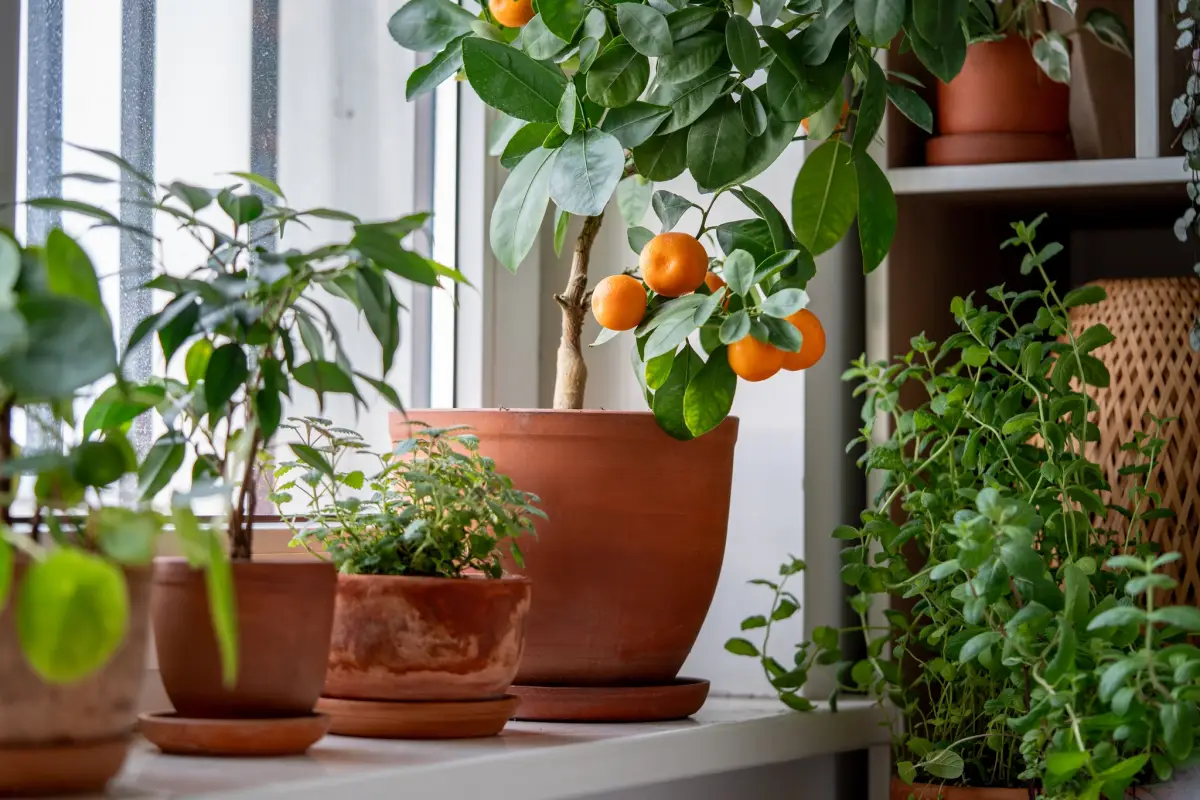How to Successfully Grow Citrus in Pots

Introduction to Growing Citrus in Pots
Growing citrus trees in pots is a fantastic way to enjoy fresh, home-grown fruit even if you have limited garden space. For gardeners in Nashville, TN, container gardening allows you to cultivate citrus trees that might not thrive in the ground due to the local climate. Here’s a comprehensive guide to help you grow healthy and productive citrus trees in pots.
Choosing the Right Citrus Varieties
When selecting citrus trees for container gardening, consider dwarf varieties that are better suited to pot culture. Some popular options include:
- Meyer Lemon: Known for its sweet and tangy flavor, Meyer lemon trees are compact and ideal for pots.
- Calamondin Orange: These small, tart oranges are perfect for container growing and make excellent ornamental plants.
- Kaffir Lime: Valued for its aromatic leaves, kaffir lime is a great choice for culinary use.
- Kumquat: These tiny, sweet fruits are easy to grow in pots and can be eaten whole.
Selecting the Right Pot and Soil
- Pot Size and Material: Choose a pot that is at least 18-24 inches in diameter and has good drainage holes. Terra cotta pots are a popular choice as they allow for better air circulation, but plastic pots are lighter and easier to move.
- Soil Mix: Use a high-quality potting mix designed for citrus or a well-draining mix of peat, perlite, and compost. Avoid garden soil, which can become compacted and retain too much moisture.
Planting Your Citrus Tree
- Planting Depth: Place the citrus tree in the pot so that the root ball is just below the rim. Fill in with potting mix, firming it gently around the roots.
- Watering: Water thoroughly after planting to settle the soil. Ensure the pot drains well to prevent waterlogging.
Care and Maintenance
- Sunlight: Citrus trees need at least 6-8 hours of direct sunlight daily. Position your pot in a sunny spot, and rotate it occasionally to ensure even growth.
- Watering: Keep the soil consistently moist but not soggy. Water when the top inch of soil feels dry, and ensure excess water drains away.
- Fertilizing: Feed your citrus tree with a balanced, slow-release fertilizer formulated for citrus. Apply according to the package instructions, typically every 4-6 weeks during the growing season.
- Pruning: Prune your citrus tree to maintain its shape and remove any dead or diseased branches. Regular pruning encourages healthy growth and better air circulation.
Overwintering Citrus Trees in Nashville
- Indoor Transition: As temperatures drop in the fall, bring your citrus tree indoors before the first frost. Place it in a sunny window or under grow lights.
- Indoor Care: Continue to water and fertilize your tree, but reduce watering slightly during the winter months. Keep the humidity level high to prevent leaf drop, and watch for pests like spider mites and scale.
- Reacclimating Outdoors: Gradually move your tree back outdoors in the spring after the last frost, increasing its exposure to sunlight over a week or two.
Troubleshooting Common Issues
- Yellowing Leaves: This can be a sign of overwatering, nutrient deficiency, or poor drainage. Adjust your watering schedule and ensure your pot has proper drainage.
- Pests: Common pests include aphids, spider mites, and scale. Use insecticidal soap or neem oil to manage infestations.
- Poor Fruit Production: Ensure your tree gets enough sunlight and is properly fertilized. Hand-pollinate flowers if necessary, especially if your tree is indoors.
Conclusion
Growing citrus trees in pots can be a rewarding experience, providing fresh fruit and fragrant blossoms. With the right care and attention, you can successfully cultivate healthy citrus trees in Nashville, TN. Enjoy the beauty and bounty of home-grown citrus right from your patio or balcony.


